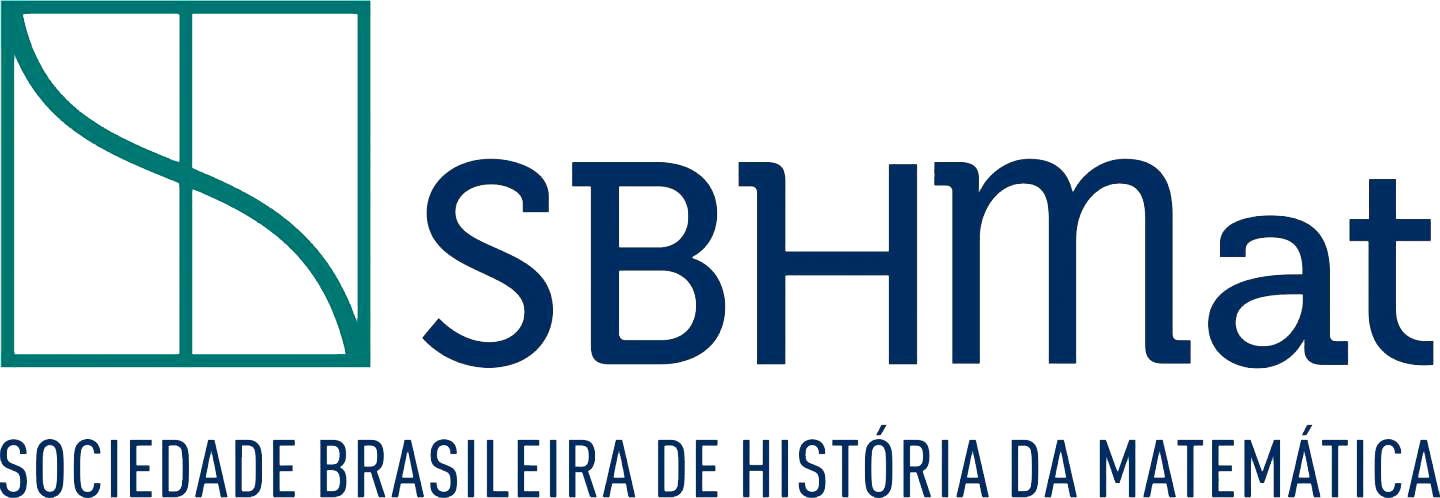A Justificação das Operações Algébricas na Inglaterra do Século XVII a XIX – O Caso das Quantidades Negativas
DOI:
10.47976/RBHM2020v20n4046-79Palavras-chave:
álgebra, Inglaterra, operações algébricas, quantidades negativas, números negativosResumo
O período de XVII a XIX abarcou uma forte discussão sobre os fundamentos da álgebra e questionamentos sobre a legitimidade de quantidades negativas e imaginárias, que eram comumente chamadas de “absurdas” ou “ininteligíveis”. A discussão, motivada pelo estabelecimento da álgebra como uma ciência de conhecimento certo, acabou trazendo interessantes movimentos entre algebristas britânicos, com a virada das abordagens analíticas para as sintéticas e finalmente com o surgimento da chamada álgebra simbólica. A presente pesquisa pretende analisar algumas dessas diferentes concepções de álgebra, com foco na maneira como eram introduzidas e justificadas as quantidades negativas e as operações básicas que as envolviam.
Downloads
Métricas
Referências
Anon. [Isaac Newton] “Universal Arithmetick: or, a Treatise of Arithmetical Composition and Resolution”. London: Senex, 1720.
Becher, Harvey. Woodhouse, Babbage, Peacock and Modern Algebra. Historia Mathematica 7, págs. 389–400. 1980.
Cajori, Florian. William Oughtred, a Great Seventeenth Century Teacher of Mathematics. Chicago: Open Court, 1916.
Enros, Philip. The Analytical Society (1812–1813): Precursor of the Renewal of Cambridge Mathematics. Historia Mathematica 10, págs. 24–47. 1983.
Fontenelle, Bernard. Éléments de la géométrie de l'Infini, Paris: Imprimerie Royale, 1727.
Frend, William. The Principles of Algebra. London: J. Davis para G.G. e J. Robinson 1796.
Hankel, Hermann. Die Elemente der projectivischen Geometrie in synthetischer Behandlung. Leipzig: B.G. Teubner, 1875.
Kersey, John. The Elements of that Mathematical Art Commonly Called Algebra. London: W. Godbid, 1673.
MacLaurin, Colin. A Treatise of Algebra. London: Millar e Nourse, 1748.
Maseres, Francis. A Dissertation on the Use of the Negative Sign in Algebra. London: Payne, 1758
Oughtred, William. Arithmeticae in numeris et speciebus instituto...quasi clavis mathematicae, London: Harper, 1648.
Peacock, George. A Treatise on Algebra. London: J. & J.J. Deighton, 1830.
Pycior, Helena. Symbols, Impossible Numbers and Geometric Entanglements. 1ª edição, Cambridge: Cambridge University Press, 1997.
Pycior, Helena. George Peacock and the British Origins of Symbolical Algebra. Historia Mathematica 8, págs. 23–45. 1981.
Rouse Ball, Walter. A History of the Study of Mathematics at Cambridge. Cambridge: Cambridge University Press, 1889.
Rouse Ball, Walter W. A Short Account of the History of Mathematics. New York: Courier Corporation, 1960.
Saunderson, Nicholas. The Elements of Algebra. Cambridge: University Pr., 1740.
Schubring, Gert. Conflicts between generalization, rigor and intuition: number concepts underlying the development of analysis in 17–19th century, France and Germany., New York: Springer, 2005.
Simpson, Thomas. A Treatise on Algebra. Primeira ed. London: Nourse, 1745.
Stedall, Jacqueline. A Discourse Concerning Algebra: ENglish Algebra to 1685. New York: Oxford University Press, 2002.
Stedall, Jacqueline. The Greate Invention of Algebra: Thomas Harriot’s Treatise on Equations. Oxford: Oxford University Press, 2003.
Wallis, John. A Treatise of Álgebra Both Historical and Practical: shewing The Original, Progress, and Advancement thereof, from time to time, and by what Steps it hath attained to the height at which now it is. Oxford: John Playford, 1685.
Woodhouse, Robert. The Principles of Analytical Calculation. Cambridge: Cambridge University Press, 1803.
Woodhouse, Robert. On the necessary truth of certain conclusions obtained by means of imaginary expressions
Downloads
Publicado
Métricas
Visualizações do artigo: 2310 PDF downloads: 20409




































